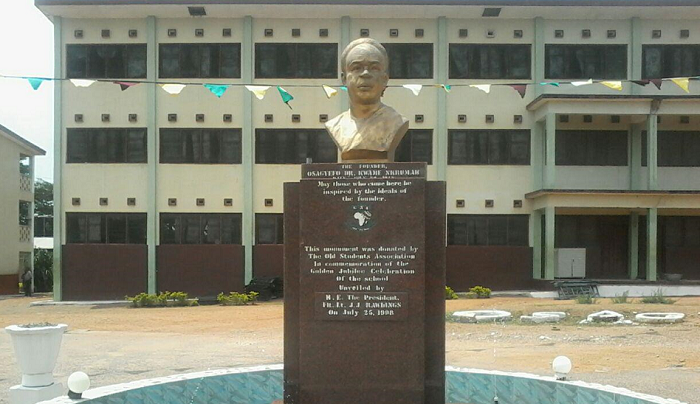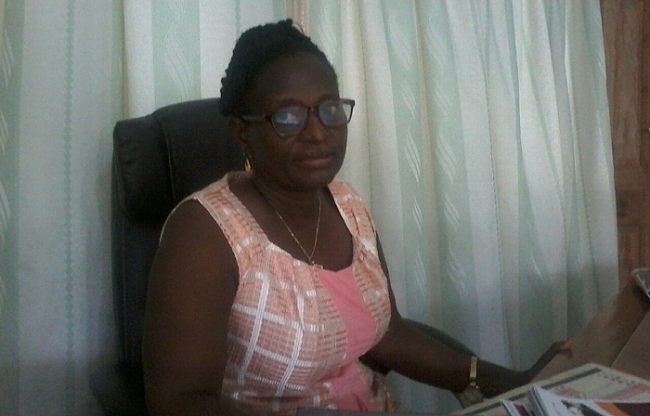
Ghana National College derives uniqueness from Osagyefo
Established on Friday, July 16, 1948, in Cape Coast, the Ghana National College (Ghanacoll) stands on the hills of Cape Coast as an imposing educational facility (a by-product of the agitations leading to Ghana’s independence).
Advertisement
Nicknamed: “Osagyefo’s own school,” the school ironically used the name Ghana National College, nine years before the Gold Coast achieved independence in 1957, and the country was named Ghana.
Committed to training responsible young nationalistic adults to prepare them to contribute to the nation’s development, the school stands like any other senior high school in the country, but Ghanacoll students, both past and present, derive a strong sense of uniqueness from its distinctive relation with Ghana’s first President, Osagyefo Dr Kwame Nkrumah.
The history
Following the well-known tragedy at Christianborg Castle which involved the shooting of ex-servicemen, Dr Kwame Nkrumah and his associates known as the Big Six were arrested.
They were Dr Kwame Nkrumah; Mr E. Obetsebi Lamptey; Mr Ebenezer Ako Adjei, Mr William Ofori Atta (Paa Willie); Dr J.B. Danquah and Mr Edward Akuffo-Addo.
Their arrest sparked student demonstrations in some second cycle institutions in Cape Coast, who asked for their release.
The Quashie-Idun Commission
The Quashie-Idun Commission set up to investigate the protests recommended the expulsion of the students and some teachers.
To this end, 150 students from St Augustine’s College and Mfantsipim School, and four teachers, three from St Augustine’s and one from Mfantsipim, were expelled.
The teachers were Mr Kwesi Plange, Mr J.J. Mensah-Kane, Mr H.P. Nelson and Mr H.W.K. Sackeyfio (Mfantsipim).
On July 1, 1948, Osageyfo Dr Kwame Nkrumah, then the Secretary of the United Gold Coast Convention (UGCC), invited the above-mentioned teachers to his office in Saltpond and commissioned Mr Kojo Botsio to evaluate plans for starting a new school.
Dr Nkrumah was said to have given 10 pounds towards starting the school with which benches, desks, blackboards and writing materials were purchased to start the school.
The school officially admitted 16 students including 15 boys and a girl to commence school work on July 16, 1948.
It is worthy to note that the Ghana National College used the name Ghana before the country was officially called Ghana.
The school began at MacCarthy Hill in Cape Coast, moved to Siwdu and then to some hostels at Kakumdo.
In September 1960, the school was moved to Mennya Mennwu in Cape Coast, its present location.
The school now
The population of the school, now a predominantly boarding school, is 2,744 students made up of 1,060 boys and 1,684 girls.
The school, which offers General Arts, Science, Visual Arts, Business and Home Economics, has 120 teaching staff and 95 non-teaching staff.
The Headmistress of the school, Mrs Juliana Owusu-Ansah, in an interview, said the school still held the values of patriotism and nationalism in high regard.
“We believe every student who passes through the Ghana National College must be nationalistic and patriotic,” she said.
She added that the school’s commitment to produce disciplined and patriotic citizens contributing meaningfully to national development had been successful to a large extent.

The Headmistress, Mrs Juliana Owusu Ansah
Old students
She said some of the products of the school could be found in the academia, politics, security agencies, religious organisations and civil society and they include Professor Jophus Anamuah Mensah, a former Vice Chancellor of the University of Education, Winneba, Prof. Francis Allottey, world-renowned scientist and former Vice Chancellor of the Kwame Nkrumah University of Science and Technology (KNUST), and the Chairman of the Electoral Commission, Mrs Charlotte Osei.
Mrs Owusu-Ansah said all students were schooled on the history of the school and how nationalistic the founders were and encouraged to build such values.
She said the school also had lectures on the Founders Day, September 21, of every year and memorial lectures in February each year to orient students to the history of the school.
“And I also know that products of this college have a unique sense of boldness. They speak their minds,” she added.
She said Ghanacoll would continue to ensure total quality education which would help develop individuals with an endurance culture worthy of the African tradition and contribute meaningfully to national development.
Some old students the Daily Graphic spoke to said they were proud of the history of their school and were committed to making exemplary marks wherever they found themselves.



